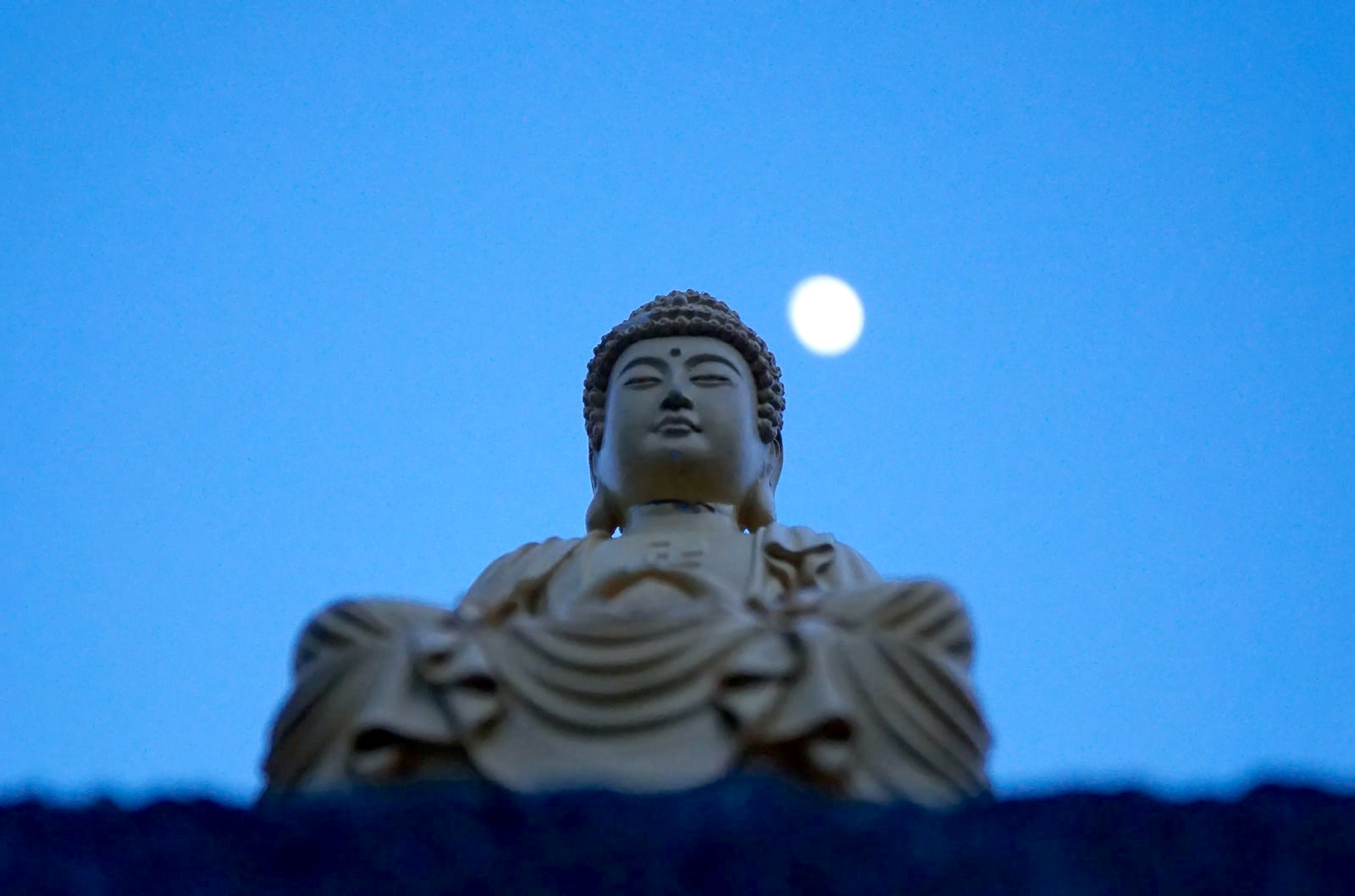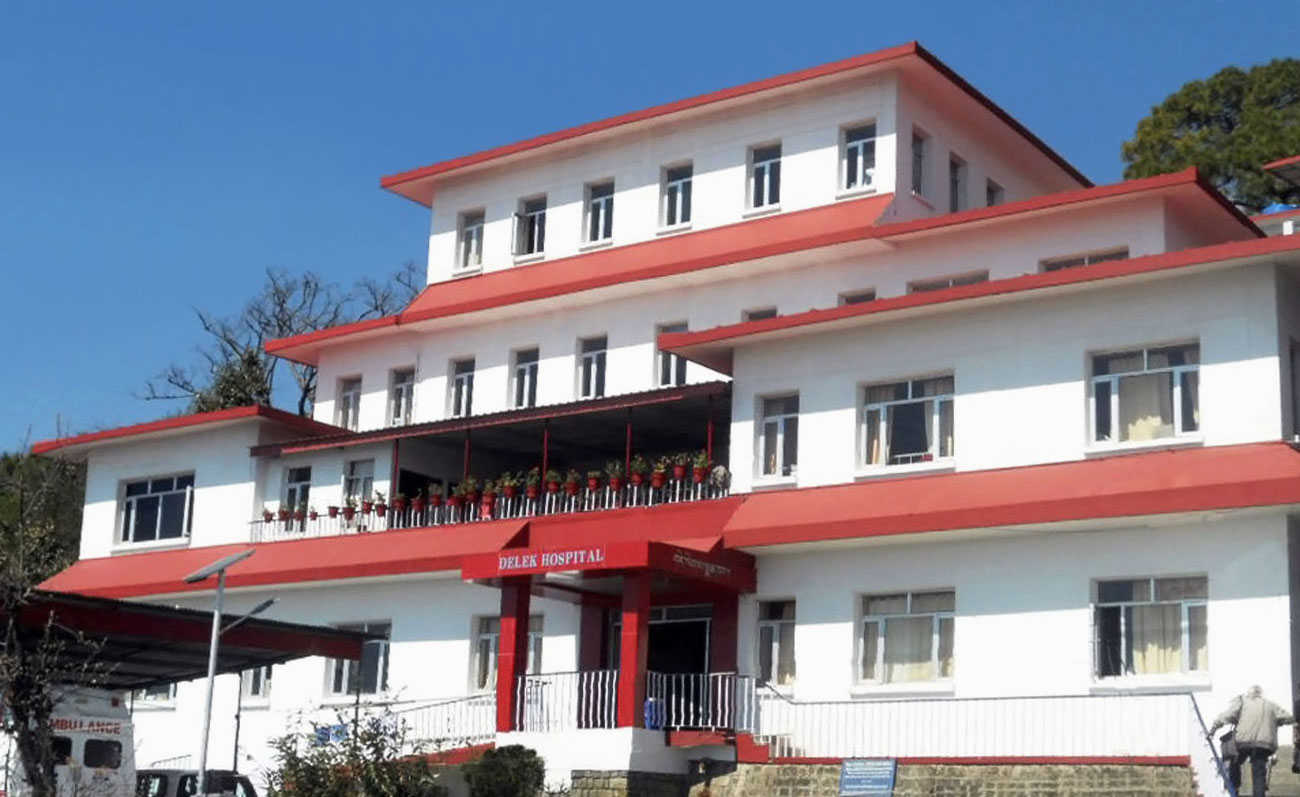Deepening Our Resolve
Three years into the challenges of life during a pandemic, a chapter from the Diamond Sutra offers light and guidance. The post Deepening Our Resolve appeared first on Tricycle: The Buddhist Review.

March 13, 2023 marks three years since COVID was first declared a national emergency in the US. This week, we’ll be sharing pieces that reflect on how COVID altered all of our lives.
Looking back at the challenges of the past three years, I find myself returning to the Diamond Sutra, which is such a guiding light. Short as it is—thirty-two brief chapters—it seems to convey exactly what I need to hear when I need to hear it. At this time, chapter sixteen really resonates, especially when I alter the text from the third-person plural (they, their) to the first-person plural (we, our).
If we virtuous men and women who receive this teaching are downtrodden, our unfortunate destiny is the inevitable result of karma committed in our past mortal lives. By virtue of our present misfortunes, the effects of our past will be worked out, and then we will be in a position to realize Supreme Enlightenment.
Shakyamuni Buddha may have given this teaching around 2,600 years ago, yet the virtuous men and women who receive it are none other than we ourselves, Buddhist practitioners living in the first quarter of the 21st century in the Common Era, scattered all over the world, right here as 2023 unfolds.
We may not think of ourselves as virtuous, but every time we refrain from callously expressing irritation, every time we restrain ourselves from consuming more than we need, and every time we offer dharma nourishment and material sustenance to one another, our minds grow in virtue.
What about the word “downtrodden”? Perhaps we can relate to that more readily than to “virtuous.” The Sanskrit word is paribhuta, which is difficult to translate. It can mean being overcome; abused; despised; held in contempt, especially by oneself.
I hear from many who feel overwhelmed, hopeless, anxious, exhausted, or despairing, as various illnesses and extreme climate crises have derailed human plans and expectations.
I recently spoke to one of the doctors in our sangha who felt completely overcome. Not a drop of resilience remained. He said he despised himself for not being able to meet his own expectations; he felt that somehow he should be able to handle even the most impossible situation, yet he wondered if he could keep going. Of course the morning found him back at the hospital, keeping on—but with a new kind of trust in Kanzeon, which we and many other sanghas chant 108 times on New Year’s Eve.
When we experience this newfound trust, Kanzeon is not merely a mantra, but a full-on transformation. We are no longer functioning in our limited capacity as humans; we become open channels for Kannon bodhisattva, Avalokiteshvara, with all her 1,000 hands and eyes—that is, the unlimited power of compassion—working through each one of us.
When the coronavirus appeared at the end of 2019, most people thought of it in a typically self-absorbed way—one of those misfortunes occurring in a place far removed, i.e.: not our problem. And during each of these past three years of affliction—paribhuta—there’s been an undercurrent of myopic thinking: once this is over we’ll take up our lives again as usual. But what caused the pandemic is exactly that “usual.” The Buddha taught that the fundamental illness is ignorance. Humans have used and abused the planet, ignored its plight, and, through selfish commodification and consumption, have brought us to this point.
For decades, scientists warned of the climate crisis. It’s no longer a matter of prediction; it’s now here. We know the facts—extreme storms, severe cold, disastrous heat waves, floods, wildfires, species extinction. As the first year of the pandemic rolled into the second, more of us began to see the key lesson being taught: We are interconnected. What one sows, all reap.
The coronavirus is a symptom that’s hard to ignore; it’s our new reality. There’s nowhere to go to avoid it. Our default mode of aversion, seeking distractions, or running away does not work with a pandemic. Wherever humans go, the virus goes, in its ever-changing physical and mental manifestations.
“Our unfortunate destiny is the inevitable result of karma committed in our past mortal lives.” To own up to this requires humility, courage, and honesty. We may not “believe” in past lives, but what about yesterday? What about last year, or for some of us, many decades during which our thoughts, words, and deeds were less than honorable, less than beneficial?
When we examine our lives on this very simple daily basis, we can see how these things play out. Our level of consumption affects everyone. So can we use less and appreciate more? Give away what we don’t need, examine our neediness, and how we’ve been filling our perceived lack? Are we using stuff to barricade ourselves against the fear of what’s out there? Or maybe in here?
How do we talk to one another? We know reactivity is a key problem; so is the certainty that we’re right, that we deserve to have our way. Privilege is very subtle, and it usually goes undercover. Can we ask ourselves what the underlying message is that we’re sending out, in between the words, the lines? The divisions and animosity in our nation and around the world are easy to see, but they function on the gross level. We can’t begin to change them unless we do something even harder: change within, change on the subtle level.
The “Verse of Purification” acts as an important reminder:
All the harmful karma, ever committed by me since of old
Caused by my beginningless greed, anger, and folly
Born of my body, mouth, and thought—
I now confess and purify it all.
This chapter of the Diamond Sutra ends with encouraging words: “By virtue of our present misfortunes, the effects of our past will be worked out, and then we will be in a position to realize Supreme Enlightenment.”
It reminds us that right here, within our present circumstances, our particular karmic constraints, we can find true freedom. By practicing together, no matter what the situation, we are changing our karma. The effects of our past are being worked out right at this very moment.
Eno (Ch: Huineng), the Sixth Ancestor, who was enlightened when he heard a line of the Diamond Sutra being recited, put it this way:
Your past lives are simply the deluded mind of your previous thoughts, and your present life is simply the enlightened mind of your subsequent thoughts. Use the enlightened mind of your subsequent thoughts to reject the deluded mind of your previous thoughts so that delusions have nowhere to cling…the moment your deluded thoughts are eliminated, the bad karma of your past lives is wiped away.
With all the trauma and all the losses, still, the pandemic has been a real opportunity for us as Buddhist practitioners. We’ve understood how precious each life is; we’ve delved into the great matter of life and death. We’ve had long periods of solitude; we’ve been able to do sesshin in person as well as online.
We’re called upon to deepen our resolve; to respond in ways that honor our interconnectedness all across the globe. We’ve got to put everything into it, with no holding back.
We have purified our hearts. We have dropped “the deluded mind of our previous thoughts” to enact “the enlightened mind of our subsequent thoughts.” Let us vow to transform the poisons of greed, anger, and delusion into the virtues of generosity, love, and clear insight. May we and all beings “be in a position to realize Supreme Enlightenment” in this Year of the Rabbit, an auspicious sign representing the spiritual healing, grace, and purity of the moon goddess.

 FrankLin
FrankLin 






























